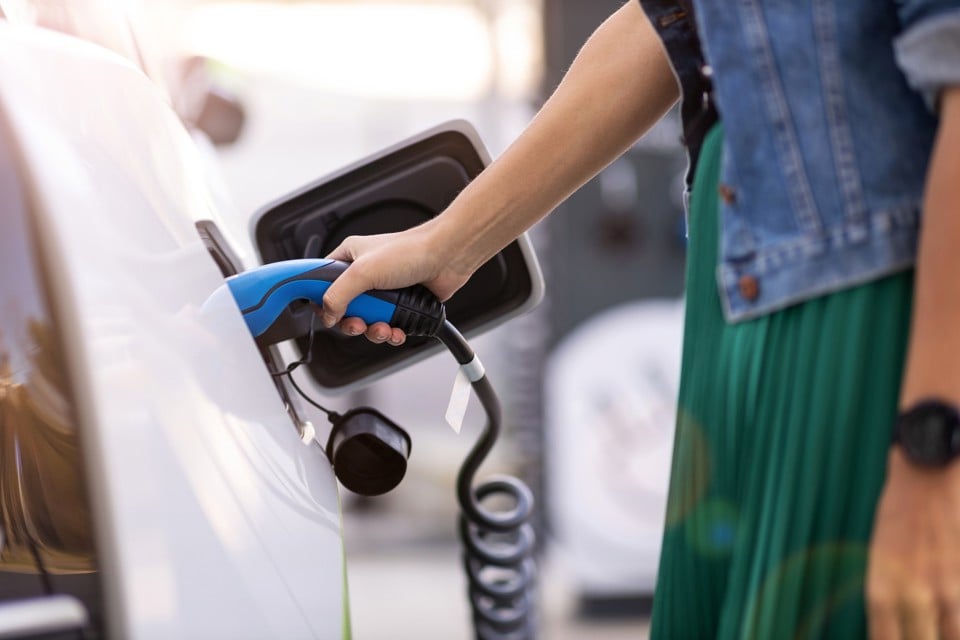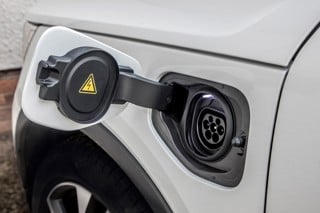Slow-charging an electric vehicle (EV) can be the most expensive way of fuelling a plug-in vehicle due to peak rates being introduced, according to the AA.
Its second AA EV Recharge Report for December shows that slow charging rates have dropped by 17p/kWh compared to November, but some providers have changed their business model by introducing peak and off-peak rates to help manage demand.
By introducing separate rates for different times of the day, the AA is urging EV drivers to check what they will be charged as peak rates can be more expensive than ultra-rapid charging.
At the same time, operators run their peak times differently, so drivers should check what rate is applied before plugging in.
Jack Cousens, head of roads policy and recharging for the AA, said: “The introduction of peak and off-peak charging mirrors many domestic energy providers’ offering to EV owners.
“We completely understand why this has been introduced as it allows the supply of electricity to remain constant throughout the day while ensuring drivers don’t overstay their welcome.
“However the price gap between the two is staggering, so much like refilling a petrol or diesel car, drivers should check the rates they could be paying before plugging in.”
Separate research from Mina across more than 60,000 charging events showed that the average price of home electricity for EVs stayed level during September at 26p, then rose to 30p in October, and 31p in November.
A continued fall in the pump price of petrol now places the running costs around 14.45p/mile meaning that a petrol combustion engine vehicle is cheaper to run per mile than an EV exclusively using the fastest types of chargers, according to the AA.
However, most EV drivers will only use rapid and ultra-rapid chargers on longer journeys or as a quick top up meaning that electric drivers will save money when comparing overall running costs with a petrol car, it says.
Mina research showed that home is by far the main source of electricity for most drivers, with 92% of all charging undertaken there.
Cousens continued: “While pump prices are falling, electricity prices are going in the other direction, but we are hopeful prices could tail off later this year.
“The Government must keep an eye on prices and act if necessary. Unlike fuel, EV charging already has a regulator in place to monitor public charging rates5 and they shouldn’t be afraid to step in if prices escalate.”
Three EV charge point operators (CPOs) have raised the cost of charging at peak times, due to high wholesale electricity costs, according to Cornwall Insight.
GeniePoint, Ubitricity and Char.gy have all joined Tesla in deploying dynamic pricing across their public networks, offering drivers lower rates for charging at off-peak hours, and higher prices during times of peak demand.
AA EV Recharge Report – December 2022 (All PAYG prices not including connection fees where applicable)
| Charger Type | Speed (kW) | December Average price (p/kWh) | November Average price (p/kWh) | Price change (p/kWh) | Cost to charge 80% at Ave p/kWh | Pence per mile (p/mile) |
| Domestic | 3-7 kW | 34p/kWh | 34p/kWh | 0p/kWh | £13.60 | 7.64p/mile |
| Slow (Flat rate) | Up to 7kW | 37p/kWh | 54p/kWh | -17p/kWh | £14.80 | 8.31p/mile |
| Slow (Off-Peak) | Up to 7kW | 37p/kWh | N/A | N/A | £14.80 | 8.31p/mile |
| Slow (Peak) | Up to 7kW | 72p/kWh | N/A | N/A | £28.80 | 16.18p/mile |
| Fast | 8-22 kW | 55p/kWh | 49p/kWh | +6p/kWh | £22.00 | 12.36p/mile |
| Rapid | 23-100 kW | 68p/kWh | 60p/kWh | +8p/kWh | £27.20 | 15.28p/mile |























Login to comment
Comments
No comments have been made yet.